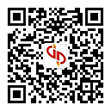“Sesame Street” has been called the “longest street in the world”.
This is because the television program by that name can now be seen in so many parts of the world.
The program , which went on the air in New York in 1969 , uses songs ,jokes , and pictures to give children a basic understanding of numbers , letters and human relationships. More than 6 million children in the United States watch it regularly. The viewers(观众) include more than half the nation's children before school age.
Many teachers consider the program a great help , though some teachers find that problems happen when the first-year pupils who have learned from “Seasame Street” , are in the same class with those who have not watched the program. Tests have shown that children who watch it five times a week learn more than those who seldom watch it. In the United States the program is shown at different hours during the week in order to increase the number of children who can watch it regularly.
Why has “Sesame Street”been so much more successful than other children's shows? Many reasons have been suggested. Perhaps one reason is that mothers watch “Sesame Street”along with their children. But the best reason for the success of the program may be that it makes every child watching it feel able to learn. The child finds himself learning , and he wants to learn more.
[单选题]
A. it is the longest TV program ever produced
B. it took much more time to put on this program than any other one
C. it is shown almost throughout the world
D. it has been on the air since 1969
[单选题]
A. children
B. children of school age
C. primary school teachers and pupils
D. mothers and their children
[单选题]
A. mother watch it with their children
B. it contains songs , stories and jokes
C. it is shown at different hours during the week
D. children are willing and able to learn when watching it
[单选题]
A. teaching will becomes a bit difficult
B. they will not get on well with one another
C. it is impossible to begin class at the fixed time
D. they don' t want to learn anything more

 原创试题专区
原创试题专区 开通学校服务
开通学校服务





